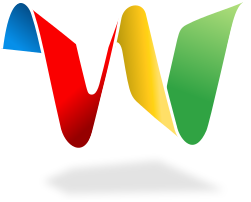(In this guest post, Markus Hegi, partially-Pune-based CEO of partially-Pune-based company Colayer, laments the death of Google Wave, and points out that the concept behind the Wave is right. Google should have re-launched a new, improved Wave, he feels, because the world does need a paradigm shift in business communications. This article is a shortened & modified version of a post published on ex.colayer.com)

3 days ago, Google announced that it would stop the development of Wave and would stop supporting it by the end of the year. Even though the buzz about Wave and the (visible) progress of Wave was low for the last few months, the shut down is surprising: I would have expected a re-launch, a change of the architecture, integration with gmail – anything, but not a complete halt – The concept behind Wave is right and ahead of its time – and Google could have been a leading player in this space!
When I looked at Wave for the first time right after the announcement one year ago, it struck me, how similar the concepts were to what we were working for years with Colayer. I started Colayer in 99 – suffering myself the mess of email communication. As a travelling business consultant I was convinced, that this can not be the way we will communicate in future! This is fundamentally wrong! – I mean: the basic idea of SENDING information on the web is wrong! (You GO TO and ARE ON Facebook, twitter, yahoo – you don’t ‘download’ it.) Google Wave addresses exactly these same issues.
We were excited to see, what approach Google would take to implement the new paradigm of online communication – But also realized quickly, that this product in this stage would not be usable for 3 main reasons:
- The Technical Architecture was too heavy and complex
- The Operability – The way to operate the tool was limiting
- The Notification – the way the users would be notified about updates in their many waves.
If you would use this product in a real world scenario with heavy communication, it would not work! – But Wave was at its very start. We thought Google would quickly realize the problems and implement solutions for it – and with their market power, Google would be able to initiate the paradigm shift in online communication.
But after the Wave launch, it seemed that innovation stopped. Yes, there was development, improvements & many extensions were released. But the above 3 problems were not addressed. They couldn’t be solved through improvements or extensions, but needed fundamental shifts in the product design – which never happened. And as many users seemed to loose patience too, Google pulled the plug for poor user adoption after only one year.
What went wrong? – Gartner has a valid point: “Startup innovation” has simply no place in a large enterprise software company. Well, this is not exactly what Gartner writes, but this is essentially the meaning: Either you are in the business of breaking & paradigm shifting innovation (Startups), or you are serving a large base of enterprise customers – Both together is almost impossible, because there is no breaking innovation, without messing up with your customers. After Wave was launched, even though it was still tagged as ‘beta’, the team could not just say to its 100’000 users: “you know, we just realized that the architecture has a fundamental problem – lets start it all over again …!” – which we, in a small company did several times …
Maybe another problem of Wave was, that Google choose the wrong market: Wave was intended for the broad consumer market, as well as for enterprises – But the paradigm shift happens elsewhere first: If you observe today’s kids and young nerds, you can imagine, how the next generation of businesses will use online communication: Email for them is ‘lame’ and just used for communication with outsiders, older people and the ‘conservative’ business world. Why would you need email anyway in a world of Facebook & Foursquare?
After 10 years, we are still in the beginning of the massive paradigm shift of online communication. I am eager to see, who will join the journey next!
About Google Wave
Wave is a web application for real-time communication and collaboration.
(See one of the most popular videos explaining the basic concepts of Wave)
Announced in May 2009, Wave attracted a lot of attention for a couple of months. The project was stopped by Google after just a little more than one year for poor user adoption.
About the author – Markus Hegi
Markus Hegi founded Metalayer (now renamed to Colayer) 10 years ago. The Colayer platform is a software technology to create collaborative web sites.
Colayer is a Swiss-Indian company with headquarters in Zurich, Switzerland and development center in Pune, India. Markus ‘commutes’ since 10 years between Zurich and Pune and spends almost half of his time here in Pune. See his linked-in profile, or follow him on twitter.
About Colayer vs Google Wave:
See an overview of articles about Colayer vs Google Wave on colayer.com.


![Reblog this post [with Zemanta]](http://img.zemanta.com/reblog_b.png?x-id=089cfa90-e258-411d-bf44-99a5ff0e30f7)
 What: A day long seminar on issues in internet as a communications medium, with Kiruba Shankar,
What: A day long seminar on issues in internet as a communications medium, with Kiruba Shankar, ![Reblog this post [with Zemanta]](http://img.zemanta.com/reblog_b.png?x-id=dc563aaa-f023-4561-8cac-a99edc390695)